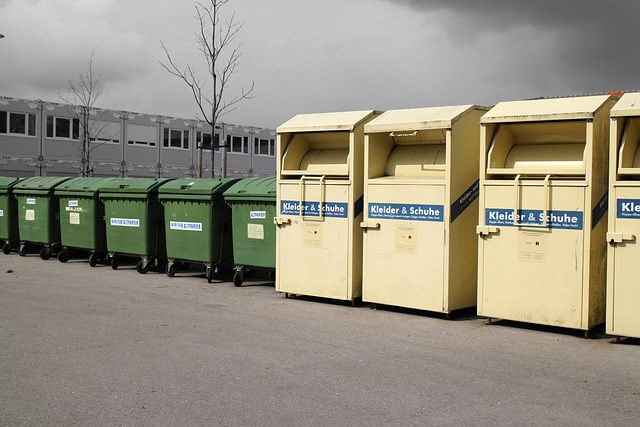Boston and New York City grapple with rapidly accumulating electronic waste due to frequent device replacements. Their unique challenges—from compact spaces in Boston to NYC's labyrinthine streets—complicate e-waste collection. Bulk e-waste recycling offers dual environmental and financial benefits, encouraging responsible disposal practices through incentives like discounted rates for bulk collections. Both cities have implemented successful programs, such as regular e-cycling events, drop-off locations, and partnerships with tech companies, fostering sustainable e-waste management practices. The future looks promising for these urban centers, with innovative solutions like tiered pricing and targeted campaigns expected to increase participation in responsible electronic waste disposal.
“In the digital age, managing e-waste responsibly is crucial, especially in bustling urban centers like Boston and New York. This article explores the growing problem of electronic waste (e-waste) in these cities and highlights the environmental and financial benefits of bulk recycling. We delve into how discounts on e-waste recycling services can significantly impact businesses and residents, offering cost savings while mitigating ecological concerns. From understanding the issue to successful case studies, this comprehensive guide uncovers the future of e-waste management and the role of discounted recycling programs in Boston and NY.”
- Understanding E-Waste: The Growing Problem in Boston and NY
- Benefits of Bulk Recycling: Environmental Impact and Cost Savings
- Who Offers Discounts on E-Waste Recycling in These Cities?
- How to Qualify for Bulk Recycling Discounts: Tips for Businesses and Residents
- Case Studies: Successful Bulk Recycling Programs in Boston and New York
- Future of E-Waste Management: Trends and Expectations for Discounted Services
Understanding E-Waste: The Growing Problem in Boston and NY

In Boston and New York City, the issue of electronic waste, or e-waste, has become a pressing environmental concern. With rapidly evolving technology, devices like smartphones, computers, and televisions are replaced at an alarming rate, leading to a significant accumulation of e-waste in these urban centers. Both cities face unique challenges due to their dense populations; Boston’s compact spaces and NYC’s labyrinthine streets complicate the collection and recycling process. The volume of e-waste generated in Boston NY far exceeds that of traditional waste streams, presenting a complex problem for local authorities and residents.
New York City, with its numerous small businesses and tech hubs, generates substantial amounts of electronics waste, while Manhattan’s e-recycling drop-off points offer limited capacity. Similarly, Boston’s tech industry contributes to the growing pile of e-waste, necessitating efficient management strategies. Offering discounts on bulk e-waste recycling can encourage responsible disposal practices among businesses and residents, helping to mitigate the environmental impact of improper e-waste disposal in both cities.
Benefits of Bulk Recycling: Environmental Impact and Cost Savings

Bulk e-waste recycling offers significant advantages both environmentally and financially. By encouraging businesses, schools, and organizations to recycle their electronic waste en masse, cities like Boston and New York can reduce their environmental footprint. E-waste contains harmful substances that, when improperly disposed of, can contaminate soil and water sources. Effective recycling methods ensure these materials are safely processed, recovering valuable resources and minimizing ecological damage.
Moreover, bulk recycling programs often lead to substantial cost savings. Organizations can secure discounts by recycling large quantities of e-waste, making it a more affordable option than traditional e-waste disposal methods. This is particularly beneficial for institutions like schools in Boston and office spaces in Manhattan that generate significant amounts of electronic waste but have limited budgets. Encouraging responsible e-waste disposal through these cost-effective measures contributes to a greener and more sustainable future for both cities.
Who Offers Discounts on E-Waste Recycling in These Cities?

In cities like Boston and New York, where technology advances rapidly, responsible e-waste recycling is more important than ever. Many organizations and businesses are stepping up to provide eco-friendly solutions for residents looking to dispose of their old electronics. In Boston, several computer recycling services offer discounted rates when customers recycle in bulk. These services cater to both individuals and businesses, ensuring proper disposal of hazardous waste according to the boston hazardous waste collection schedule. Similarly, in New York City, numerous tech waste management companies have adopted similar strategies, providing discounts on e-waste recycling for bulk collections. From outdated computers to obsolete smartphones, these initiatives make it convenient for NYC residents to contribute to sustainable practices while saving money.
How to Qualify for Bulk Recycling Discounts: Tips for Businesses and Residents

Qualifying for bulk e-waste recycling discounts can be a game-changer for businesses and residents in Boston and New York City looking to dispose of their electronic waste responsibly. Here are some tips to help you navigate this process effectively:
First, understand that many e-recycling centers in both cities offer tiered pricing structures, where larger volumes or regular shipments result in significant savings. For businesses, becoming a consistent client can unlock exclusive discounts. Keep records of your recycling history and be prepared to share them when inquiring about prices. Additionally, some programs cater specifically to startups and small businesses, providing incentives for early adoption of green IT disposal solutions. In Boston, there are various e-cycling events and initiatives that offer bulk drop-off points, often with promotional rates. Similarly, NYC has several eco-friendly organizations that collaborate with local businesses to promote sustainable e-recycling practices, sometimes featuring special discounts during awareness campaigns.
Case Studies: Successful Bulk Recycling Programs in Boston and New York

In Boston, the city’s commitment to sustainable practices has led to the implementation of several successful bulk e-waste recycling programs. One notable example is the Boston electronic waste drop-off locations initiative, which provides residents and businesses with convenient access points for responsibly disposing of old electronics. These drop-off locations are strategically placed throughout the city, making it easy for folks to participate in eco-friendly recycling efforts. The program has been a game-changer in reducing the city’s e-waste footprint, with thousands of pounds of electronic devices being recycled annually.
Similarly, New York City has made significant strides in e-waste management through innovative collection events and partnerships with tech companies. Boston cyber trash collection drives have gained popularity, attracting large numbers of participants eager to dispose of their outdated gadgets responsibly. These events often include workshops on proper recycling techniques and the environmental impact of e-waste. Additionally, New York has launched boston e-recycling for startups programs that encourage tech startups to adopt sustainable practices by providing them with specialized recycling solutions tailored to their unique needs. Such initiatives have not only reduced the region’s electronic waste but also fostered a culture of environmental stewardship among businesses and residents in both Boston and New York.
Future of E-Waste Management: Trends and Expectations for Discounted Services

The future of e-waste management is shaping up to be a sustainable and cost-effective one, especially in bustling cities like Boston and New York. Trends indicate a growing emphasis on bulk e-waste recycling, driven by both environmental awareness and economic considerations. With proper incentives, such as discounted services for bulk collections, businesses and residents are more likely to participate actively in responsible electronic waste disposal.
In Boston, the cyber waste collection program has been gaining traction, offering appealing discounts for those who recycle significant amounts of e-waste. Similarly, New York City’s electronic waste recycling statistics show a steady increase in participation rates, thanks to accessible cell phone recycling centers and other initiatives. These developments suggest that as cities continue to innovate, we can expect even more efficient and affordable solutions for managing e-waste, making it easier for everyone to do their part for the environment.
In conclusion, bulk e-waste recycling offers significant environmental benefits while providing cost savings for businesses and residents in Boston and New York. As the demand for eco-friendly solutions increases, discounts on e-waste management become an attractive incentive for responsible disposal. By understanding the available options and following the tips outlined in this article, individuals and organizations can contribute to a sustainable future while potentially reducing their environmental footprint through efficient e-waste recycling programs.













